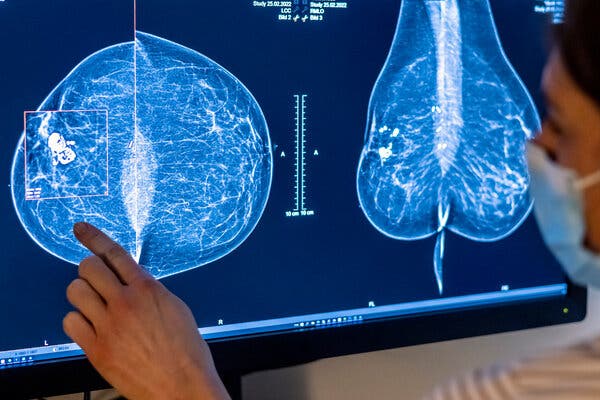Some researchers said the advice did not go far enough. The panel also declined to recommend extra scans for women with dense breast tissue.

Citing rising breast cancer rates in young women, an expert panel on Tuesday recommended starting regular mammography screening at age 40, reversing longstanding and controversial guidance that most women wait until 50.
The panel, the U.S. Preventive Services Task Force, finalized a draft recommendation made public last year. The group issues influential advice on preventive health, and its recommendations usually are widely adopted in the United States.
In 2009, the task force raised the age for starting routine mammograms to 50 from 40, sparking wide controversy. At the time, researchers were concerned that earlier screening would do more harm than good, leading to unnecessary treatment in younger women, including alarming findings that lead to anxiety-producing procedures that are invasive but ultimately unnecessary.
But now breast cancer rates among women in their 40s are on the rise, increasing by 2 percent a year between 2015 and 2019, said Dr. John Wong, vice chair of the task force. The panel continues to recommend screening every two years for women at average risk of breast cancer, though many patients and providers prefer annual screening.
“There is clear evidence that starting screening every other year at age 40 provides sufficient benefit that we should recommend it for all women in this country to help them live longer and have a better quality of life,” said Dr. Wong, a primary care clinician at Tufts Medical Center who is the director of comparative effectiveness research for the Tufts Clinical Translational Science Institute.
The recommendations have come under harsh criticism from some women’s health advocates, including Representative Rosa DeLauro, Democrat of Connecticut, and Representative Debbie Wasserman Schultz, Democrat of Florida, who say the advice does not go far enough.

